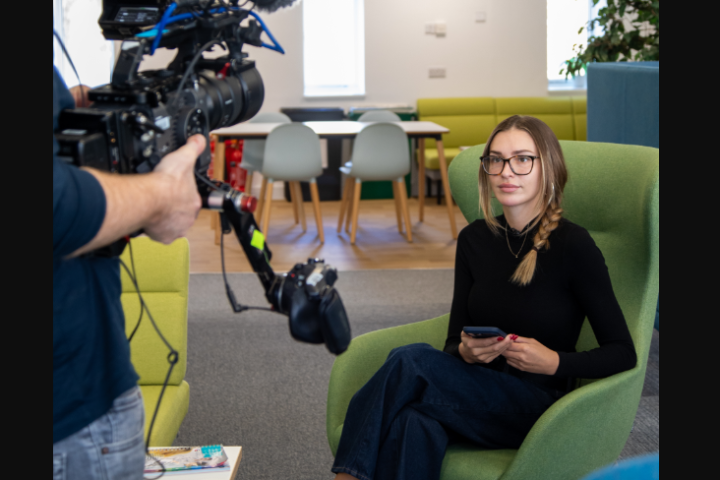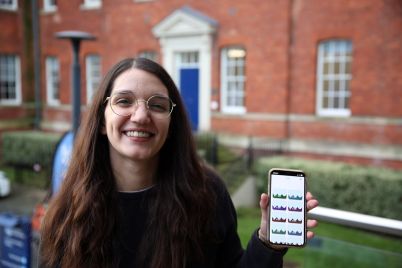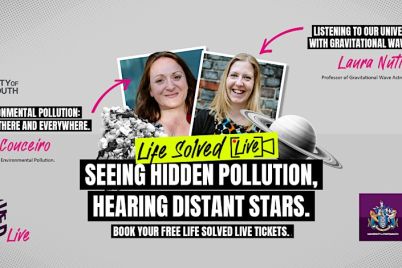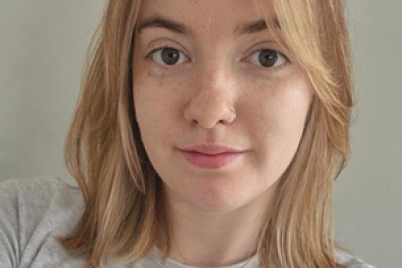With the ongoing growth of social media and content creation being so prevalent in our day and age, the documentary-maker and reality star, Zara McDermott, recently visited Chichester Campus to investigate how scrolling short-form content on a smartphone can affect the attention and brain activity of people with ADHD.
Being already well known for her films for BBC3 exploring topics through a Gen Z lens, Zara was keen to find out more for BBC Morning Live in a report which was screened yesterday (Tuesday 28th October).
Over 3 million UK residents have ADHD.
People with ADHD have irregular dopamine (the brain’s motivation/reward chemical), causing them to seek constant simulation bursts.
Zara worked with Dr Benjamin Sharpe, the Senior Lecturer in Cognitive Psychology from University of Chichester who has studied how phone scrolling affects ADHD brains, and ADHD advocate Leanne Maskell, who helps young people manage their daily ADHD challenges.
Dr Sharpe’s experiment tested how 20 minutes of scrolling TikTok and Instagram affects someone’s attention – where Zara and Leanne wore EEG caps (measuring brain waves) and eye-tracking glasses while watching short videos. This compared ADHD responses to neurotypical ones, and the results showed a notable difference in Leanne’s brain activity and focus when compared to Zara.
Senior Lecturer in Cognitive Psychology at the University of Chichester, Dr Benjamin Sharpe, explains: “Mobile scrolling appears to give ADHD brains quick rewards (dopamine hits), making their attention problems worse. Brain scans showed more theta waves (slow ‘daydreaming’ waves) and fewer beta waves (fast ‘focus’ waves) after scrolling. Eye movements became jumpy and couldn’t focus well, even after stopping. The constant new content prevents the brain from making enough beta waves for concentration. This trains the brain to need excitement, making normal tasks feel extremely boring – creating a cycle where the ADHD brain needs even MORE stimulation to feel normal.”
Leanne added: “If you have ADHD, your brain is chasing dopamine already, so it’s not surprising that this type of short video content is the most engaging and addictive content format, especially for a brain that is already seeking stimulation.”
The University of Chichester’s Human Attention Laboratory explores the fascinating world of human cognition, particularly how we maintain focus on an increasingly distracted world. Dr Sharpe’s research has a particular focus on sustained attention, but topics include stress and coping and cognitive impairment.
The full report is available to watch now on the BBC Morning Live website and BBC iPlayer.















